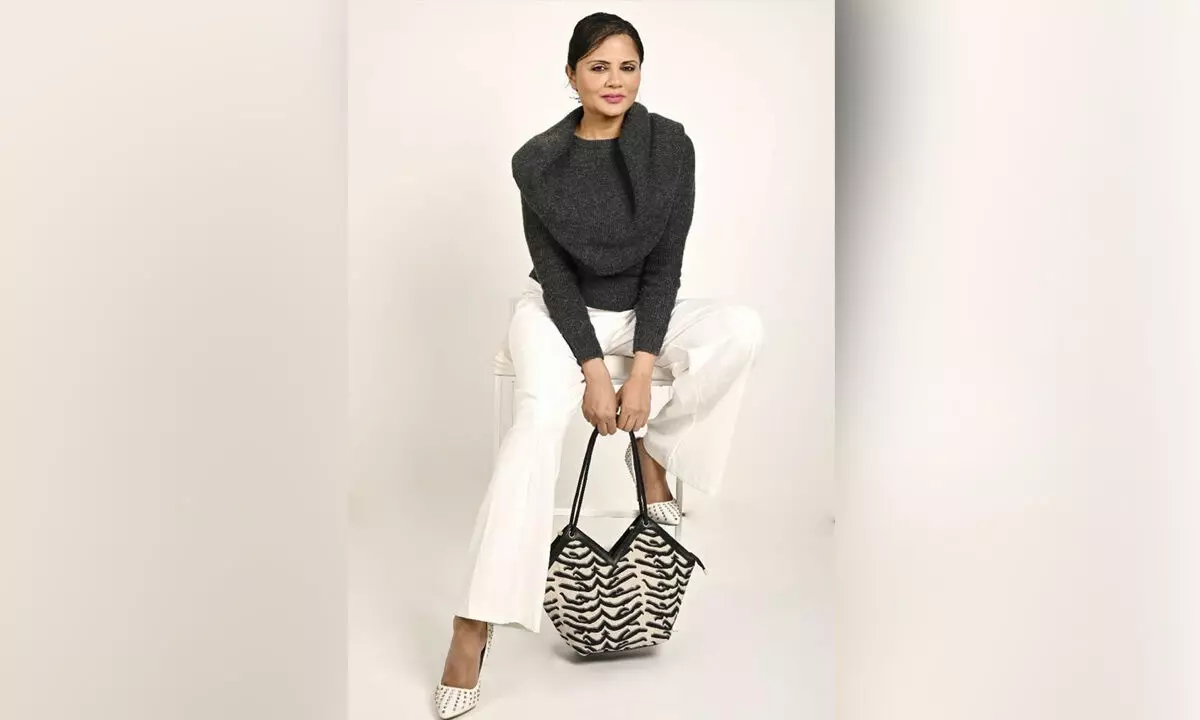Sustainability in fashion: Paving the way for a greener future

Mamta Roy, Founder of Odette E-Retail
In recent years, the fashion industry has undergone a significant transformation as designers and consumers alike have become more aware of the environmental impact of their choices.
In recent years, the fashion industry has undergone a significant transformation as designers and consumers alike have become more aware of the environmental impact of their choices. The demand for sustainable fashion has grown exponentially, leading to a shift towards more eco-friendly practices in the production and consumption of garments. From reducing carbon footprints to using organic fabrics and promoting reusable fashion, the industry is making remarkable strides towards a greener future.
One of the key areas where sustainability efforts are being focused is the production process. Traditional textile manufacturing involves the use of synthetic dyes, pesticides, and excessive water consumption, with the resulting wastewater often containing harmful chemicals that are released into water bodies. To combat this, many fashion brands are now switching to organic fabrics and natural dyes, which not only minimize water usage but also reduce the release of harmful substances into the environment.
Organic fabrics such as hemp and organic cotton are gaining popularity due to their lower environmental impact and their ability to biodegrade at the end of their lifecycle.
Packaging is another crucial aspect where sustainable practices are being implemented. The fashion industry is moving away from plastic and non-recyclable materials and embracing more eco-friendly alternatives. Paper boxes, bags, and starch-based packaging are becoming increasingly prevalent, providing a sustainable and biodegradable solution to traditional packaging methods. By opting for these alternatives, fashion brands are significantly reducing their contribution to the global plastic pollution problem.
Sustainable fashion encourages the use of natural materials for accessories such as bags and purses. Cane bags, fabric bags, and other similar products made from renewable resources are gaining popularity as consumers seek more ethical and environmentally friendly alternatives to synthetic materials. These natural materials not only contribute to reducing waste but also add a unique touch to fashion ensembles.
The concept of reusable fashion is gaining traction as more people realise the value of investing in versatile pieces that can be mixed and matched to create new looks. This approach reduces the need for constantly buying new clothing items and promotes a more conscious consumption pattern. By embracing timeless designs and quality craftsmanship, individuals can build a sustainable wardrobe that transcends fleeting trends and supports the longevity of their fashion choices.
As the fashion industry continues its journey towards sustainability, it is essential for brands, consumers, and industry influencers to work together in driving positive change. By prioritising eco-friendly practices, such as reducing carbon footprints, using organic fabrics, minimizing water usage, and promoting reusable fashion, the fashion industry can lead the way in creating a more sustainable future. Sustainability in fashion is no longer a mere trend but a necessity. The efforts being made by the industry to reduce its environmental impact are commendable, and the shift towards greener practices is a step in the right direction. By embracing sustainable fashion choices, we can collectively contribute to preserving our planet while still expressing our personal style. It is through these conscious decisions that we can create a fashion industry that not only looks good but also does good for the world we live in.














